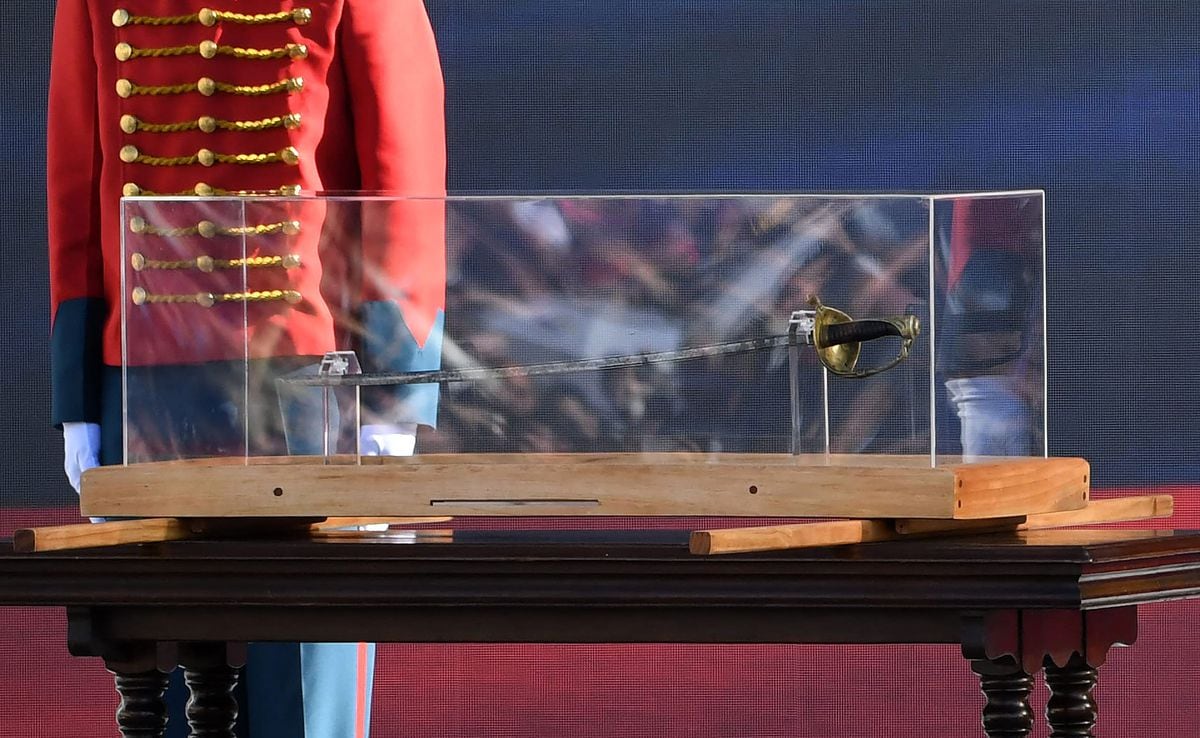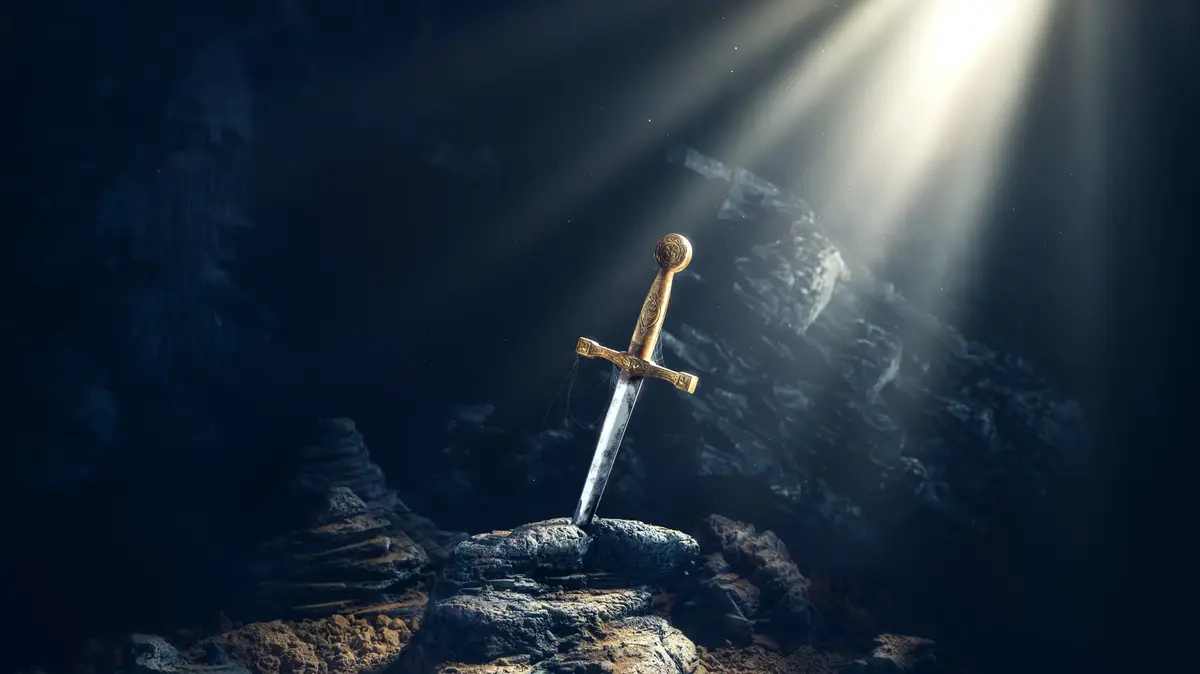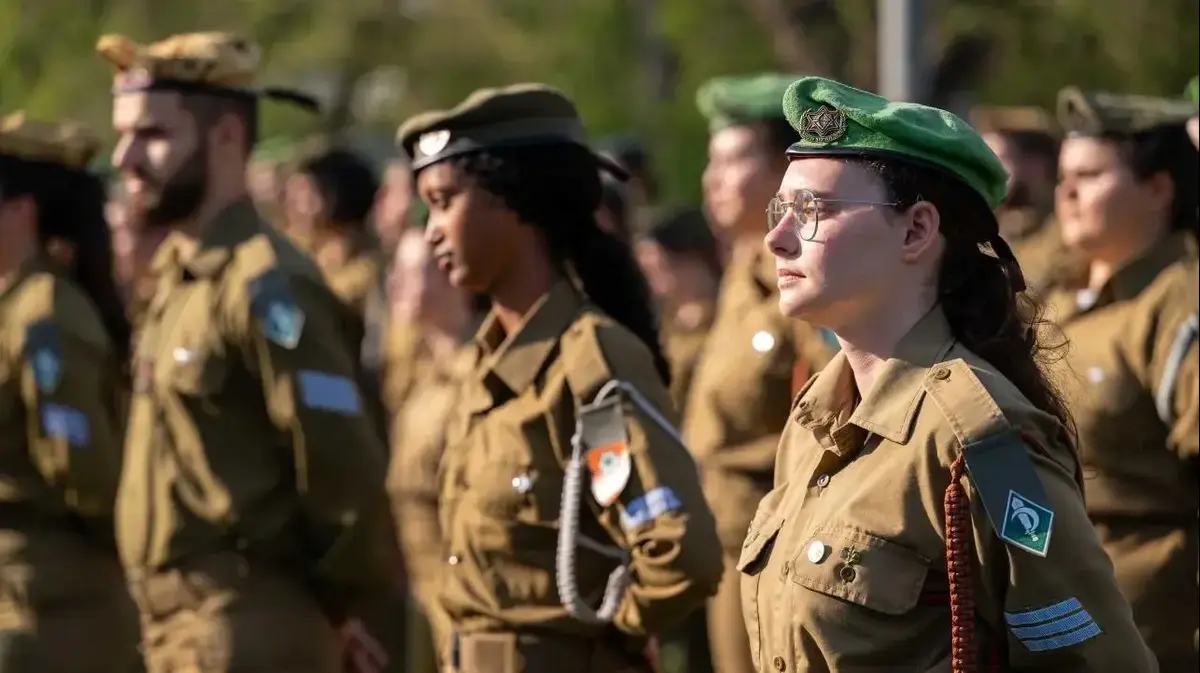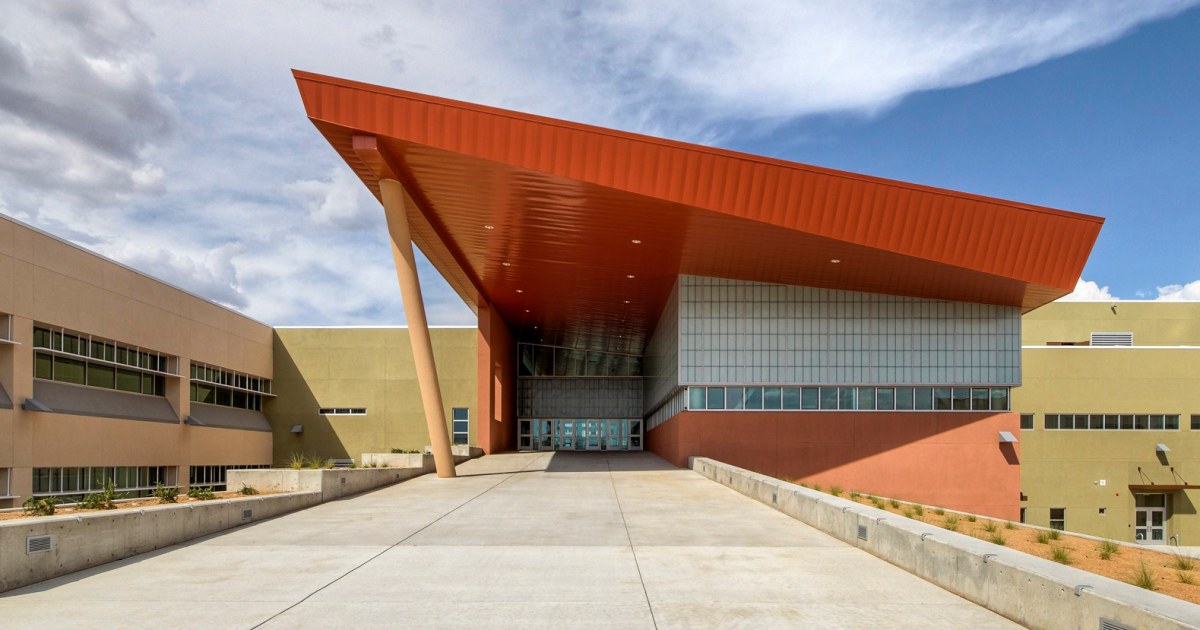The controversy over the decision of King Felipe VI not to rise up before the sword of Simón Bolívar during the inauguration of Gustavo Petro as president of Colombia continues to generate debate in Spain.
In the South American country, on the other hand, the Government has remained silent on this episode.
In Colombia, the scandal does not revolve around what the King of Spain did or did not do before the sword, but around the fact that the object, a symbol of the country's independence, has been tainted in recent decades.
These are five keys on the sword:
history of a symbol
The sword of Simón Bolívar, liberator of Colombia and five other countries, is one of the relics of the leader who died in Santa Marta, Colombia, in 1830. Like many of his belongings, it ended up forming part of the Museo Quinta de Bolívar, a mansion on eastern and mountainous edge of downtown Bogotá that became a museum at the beginning of the 20th century.
The sword, initially inventoried in 1924 shortly after the Museum was inaugurated, has a shield on which you can see Gran Colombia in relief, plant decoration and the three stars that represent being a general.
Although symbolic, it did not have much relevance in a country that was not particularly Bolivarian, but in which the Army claimed to be the successor to the one headed by the hero.
The guerrilla in which Petro was revived its importance
In January 1974, the sword disappeared from the Quinta de Bolívar.
The nascent guerrilla called M-19, an urban group that had been inspired by the Uruguayan Tupamaros and had among its flags a claim against the influence of the United States in Colombia, decided to make itself known through a symbolic gesture claiming the rebellion of the heroes of independence, as the Uruguayans had done with the flag of the 33 Orientales.
With a sense of marketing, in the previous days advertisements had appeared in Bogota newspapers announcing the arrival of something called M-19, with announcements like this: “Parasites?
Worms? Lack of memory? Inactivity?
m-19 is coming”.
With the same logic, they left pamphlets in the Quinta explaining their political manifesto.
At that time, the sword gained symbolism: the M-19 wrote: "Bolívar, your sword returns to the fight", the Army felt wounded in his honor and the robbery became a letter of introduction to the guerrillas.
“When the M-19 took Bolívar's sword out of the Quinta del Libertador in 1974, I didn't know anything about that group.
I lived in Cali and I found that gesture very interesting, although I didn't know who were the ones who had stolen it, ”recalls Antonio Navarro, who later became commander of the M-19, on social networks.
He starred in a political thriller
After the theft, the sword became an object of desire, with the guerrillas hiding it and the military searching for it.
Although there are several contradictory versions that increase the symbolism of the robbery, it is clear that initially the poet León de Greiff hid it until his death in 1976. Later it was hidden until, in 1991, the already demobilized M-19 returned it in a event held at the Fifth.
There Navarro handed it over to the then president, César Gaviria, as a gesture that sealed the peace signed between the government and the guerrillas.
“I found out where Bolívar's sword was in 1989. I remember that Carlos Pizarro told me because I became the second in command of the M-19.
That was the best kept secret of the group.
Bolívar's sword was in Cuba from 1970 until we returned it in 1991, "says Navarro.
It was a symbol of change in possession
The new bid for the sword began more than a month ago when, a few days after the presidential elections that gave Petro the winner, outgoing President Iván Duque invited him to the Casa de Nariño, the presidential palace.
During the visit, Duque got up and asked Petro to accompany him.
He led him to the place where the sword rested in a glass case.
After that scene, which could well have opened a space of harmony between Duke and Petro, the relationship did not improve.
Just a few hours before the inauguration, Duque denied authorization for Bolívar's sword to be part of the ceremony, as Petro had requested.
The new president reacted, just received the presidential sash from him.
"As president of Colombia, I ask the Military House to bring Bolívar's sword, an order of popular mandate," he said, giving his first instruction.
If the sword had not been brought to him as an elected candidate, as president he would take it himself.
So it was.
Controversy in Spain, silence from the Government of Colombia
This Sunday, when the sword arrived at the Plaza de Bolívar in Bogotá, the heads of state or high-ranking dignitaries present, from countries such as Chile, Argentina or Mexico, rose from their chairs to welcome it.
Everyone except King Felipe VI.
Although that sparked controversy in Spain, the Government of Colombia has not spoken to her, and the debate has focused more on why Duque denied the authorization.
Subscribe here
to the EL PAÍS newsletter on Colombia and receive all the key information on the country's current affairs.














